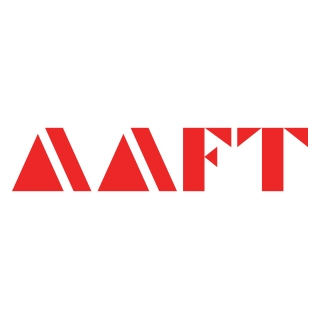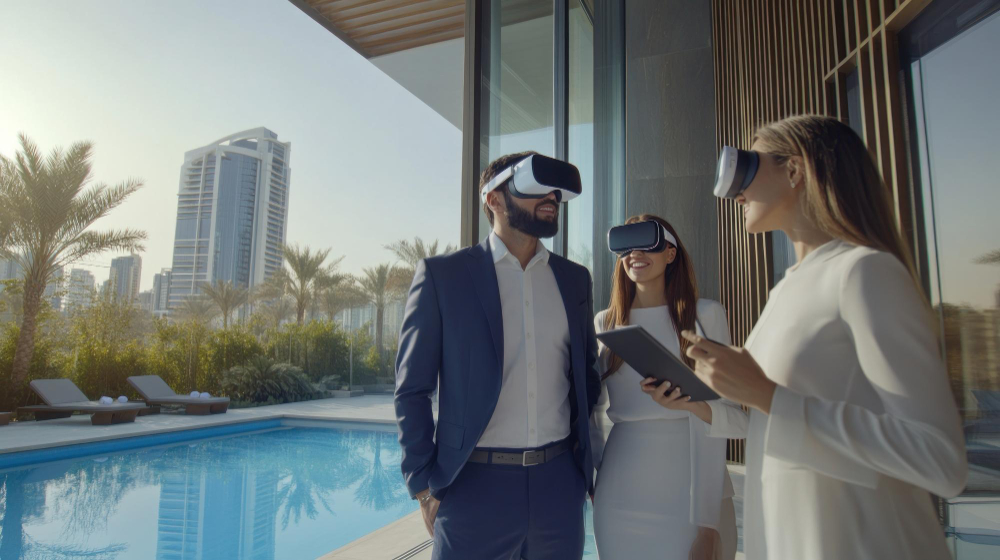Why is Customer Experience Management Important in Hospitality?
Customer experience management (CXM) is central to the hospitality industry for its ability to improve guest satisfaction and the reputation and credibility of hotels. With advanced technology, CXM enables data-driven decisions and better operation management, providing competitive advantages to businesses.
2025 is expected to be a pivotal year for the hospitality industry, where technology and eco-conscious approaches meet personalized and rich customer service.
Read ahead to learn more about why customer experience management is important in hospitality and how it boosts loyalty, guest satisfaction, and revenue in the dynamic and highly competitive hospitality industry.
What is Customer Experience Management?
Customer Experience Management in the Hospitality industry (CXM or CEM) is a set of techniques and strategic approaches that help create a consistently positive experience and enhance customer satisfaction.
Do you want free career counseling?
Ignite Your Ambitions- Seize the Opportunity for a Free Career Counseling Session.
- 30+ Years in Education
- 250+ Faculties
- 30K+ Alumni Network
- 10th in World Ranking
- 1000+ Celebrity
- 120+ Countries Students Enrolled
Hotels create comprehensive plans that ensure all the individual needs of their guests are met from the moment they enter till they leave. This includes smart technology, personalized activities, wellness centers, recreational spots, and providing a rich local experience.
Read Also: Discover Hospitality and Tourism Management Courses: Eligibility, Scope, and Career Pathways
CXM is highly data-driven and relies extensively on consumer data around preferences, behaviors, and changing needs. It uses AI-driven automated models to collect, process, and analyze large datasets that monitor performance and translate feedback into quantifiable values that are used for forecasting and improving customer service.
Book Now →
Importance of Customer Experience Management in Hospitality
A good customer experience management strategy can make all the difference by fostering trust and loyalty, increasing revenue, and adding to the reputation and credibility of a hotel business.
Here’s why CXM is an integral part of hospitality –
- Enhanced Reputation and Credibility
Positive and satisfactory guest experiences result in positive reviews, feedback, and recommendations. Happy guests are also more likely to spend money on additional services, revisit the hotel, and contribute to revenue growth.
Do you want free career counseling?
Ignite Your Ambitions- Seize the Opportunity for a Free Career Counseling Session.Feedback and testimonials are an essential part of attracting new guests as well. These act as promotional tools and increase the visibility of a hotel online, enhancing their long-term credibility.
- Loyalty and Repeat Business
Guest satisfaction is a crucial factor in creating a loyal consumer base. When guests have a satisfactory experience, they come back to the same hotel, which creates repeat business.
Repeat business is a more cost-effective marketing strategy and allows businesses to better anticipate and design personalized services, further increasing the CXM value and enabling upselling and cross-selling that improve the ROI.
- Improving Operational Efficiency
Operational efficiency in customer experience management refers to streamlining customer services by efficiently using all the resources, so it saves time and cost, and reduces waste generation.
CXM allows hotels to automate tasks, integrate technology in relevant areas, and ensure standardized workflows.
CXM software reads and analyzes consumer data, tracks metrics, looks into insights, understands consumer behavior patterns, and makes data-driven decisions that reduce costs, manage waste, and maximize guest satisfaction.
- Competitive Advantages
Good customer experience management strategies facilitate precise and targeted marketing by optimizing data. Hotels can introduce personalized services, making businesses more attractive to prospective customers and fostering loyalty among existing ones.
Tech-oriented CXM enables quick problem solving and prompt response using smart tech and the latest digital tools and software. It provides a competitive edge and helps hotel businesses stand out, retain customers, and become more profitable.
- Data-driven Decision Making
CXM systems are often synced with CRM software that helps collect comprehensive data about consumer preferences and behavior by tracking inquiries, stay histories, and monitoring other essential metrics.
Hotels can use the available data to identify patterns and trends, find out consumer pain points and gaps in the current services to provide guests with exactly what they want and when they want it.
Data-driven strategies, in turn, help allocate resources better, improve staff management, and personalize services.
Read Also: Discover Hospitality and Tourism Management Courses: Eligibility, Scope, and Career Pathways
Customer experience management also helps hotels look into insights and analytics and track their performance through regular audits, and continuously work on their services.

Customer Experience – Trends to Watch Out For in 2025
- Hyper Personalization
Personalization is the key to enhancing guest satisfaction and providing top-notch services to consumers, catering to their specific needs. Hotels are optimizing consumer data, tracking their metrics, and analyzing consumer behavior to provide services that address the gaps in the market.
From accessible spaces, integrating Internet of Things (IoT), and adjustable furniture and fixtures to customized menu plans and wellness spaces, hyper-personalization is likely to be a major focus for hotel businesses in 2025.
Read Also: Psychology of Guest Behavior Satisfaction in Hospitality
Hotels are also introducing ‘customized on-demand services’ where a guest can pick and choose services they want instead of booking pre-determined packages, similar to the ‘à la Carte’ menu in restaurants. This provides guests with agency, saves time and cost for both parties, and fosters customer loyalty and satisfaction.
- Smart Technology Becoming Mainstream
While smart tech like no-contact check-ins, voice-controlled instructions, and smart rooms with thermostats, sensor-enabled lighting, etc., have been around for some time, in 2025, embracing all things tech is likely to become mainstream, allowing hotels to streamline their operations.
These smart technologies allow guests to control their room ambience, engage and interact with the space in a way that wasn’t possible before, increasing convenience and elevating the experience.
- Sustainability and Green Initiatives
With climate change being a serious concern, hotels are integrating sustainable methods and promoting sustainable and eco-conscious practices.
From initiatives aimed at reducing waste, conserving water, and decreasing energy consumption to introducing climate-friendly and biodegradable products in rooms, green approaches and sustainability are beyond buzzwords.
Going green reinforces a brand message that resonates with environmentally conscious travelers and creates a sense of community, attracting more responsible consumers and enriching the overall experience.
- Focus on Wellness
Wellness tourism in India has been steadily growing and is expected to further expand in 2025. It includes spas, yoga retreats, fitness centers and gyms, saunas, and outdoor trails and recreational spots.
The rise of bleisure travels and staycations has also significantly contributed to the increasing growth of wellness tourism in the country.
Hotels offer on-demand facilities and customized packages, aligning with the tastes and preferences of the consumer groups they target. It enhances guest satisfaction, attracts more fitness-conscious customers, and suits their holistic personalized care needs.
- Supporting Local Culture and Communities
Integrating local culture and customs has proved to be an effective way of ensuring a sustainable business plan while also giving back to the local community and ecosystem.
From interiors reflecting the master artisanship of traditional craft communities to introducing nature walks, getting the guests acquainted with the region, and local cuisine on the menu, supporting local arts and communities creates a rich and fulfilling experience.
Read Also: Top 10 Renowned Chefs in India You Need to Know
It showcases dedication and commitment to social responsibility and aligns with the values of guests who support local small businesses and are interested in an in-depth cultural experience.
- Integrating Data Analytics in Customer Experience Management
Data is the new currency in the fast-paced, digitally driven world. Businesses analyze data from website traffic, social media engagements, purchase history, and feedback and testimonials to identify patterns and look for areas of improvement.
Integrating data analytics with customer experience management allows hotels to personalize services, solve existing problems, develop foolproof marketing strategies, and provide a comfortable and convenient stay to their guests, improving their customer service and boosting loyalty.
- Rich Culinary Experiences
Hotel businesses are addressing a diverse demographic by offering rich culinary experiences, among other personalized services.
Taking the menu beyond basic needs, hotels offer a variety of dishes for people with different dietary needs, gourmet options, local cuisines, themed experiences, and more.
It provides guests with ample choices and takes them on immersive journeys through different cultural and regional foods, an appealing ambiance, customized platters, and aesthetic presentations. Enriching culinary experiences enhances customer satisfaction and is an integral part of customer experience management today.
Conclusion
With the rise of tourism and the expansion of the hotel industry in the country, it is crucial to highlight the reasons why customer experience management is important in hospitality and how it shapes the future of these businesses.
In India, customer experience management increasingly focuses on enhancing satisfaction and making spaces more accessible and convenient. Hotels have thus integrated artificial intelligence and advanced data analytics, facilitating hyper-personalization, real-time engagement, and customer-centric approaches.
Read Also: Top 10 Hospitality Management Schools Worldwide
CXM provides a competitive edge to hotel businesses, adding to their credibility and reputation and fostering loyalty, while also improving operational efficiency, sustainability practices, and data-driven decision-making.
If you are an aspiring hotelier and want to learn all about customer relations management, CXM, and other related areas of hospitality, AAFT Noida offers comprehensive courses in hotel and hospitality management that will help you kickstart your dream career.

AAFT has been providing the world with limitless creativity and expression since 1993! Through a dynamic and industry-driven curriculum, AAFT provides engaging and captivating articles to persuasive blogs and empowers its readers to explore diverse avenues of creative media education-related content.






